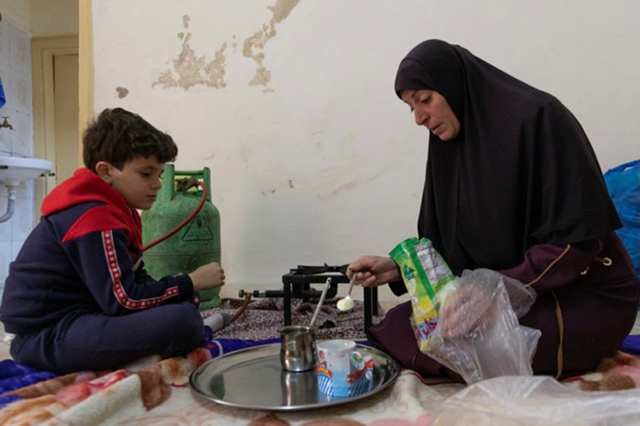You are here
Over 460,000 people benefitted from UNHCR Winter Cash Assistance Programme
By Mays Ibrahim Mustafa - Jul 09,2023 - Last updated at Jul 09,2023
AMMAN — UNHCR, the UN Refugee Agency, reported distributing $14.18 million in winter cash assistance for roughly 113,000 refugee households in Jordan from December 2022 to January 2023.
The agency’s Post Distribution Monitoring (PDM) Report for its Jordan 2022 -2023 Winter Cash Assistance Programme showed that the number of beneficiaries exceeded 460,000 individuals.
“Approximately 35 per cent of respondents reported that the winter cash assistance either moderately (31 per cent) or significantly (4 per cent) improved their living conditions, and 64 per cent of respondents reported that the winter cash assistance had slight (52 per cent) to no impact (12 per cent) on their living conditions,” the report stated.
It noted that although the 2022-2023 winter cash assistance programme had an overall positive impact on refugees’ well-being, its ability to fully meet its objectives was “tempered” by the lack of “adequate funding”.
“UNHCR Jordan has been providing seasonal cash assistance to help poor refugee households meet their most basic winter needs since 2012.
In 2022, the operation appealed for $45 million in donor funding to meet the estimated winter needs among the poorest refugees but mobilised only $14.6 million,” it added.
Refugee households eligible for the 2022-2023 winter cash assistance received $100 to $140 per household. This was expected to only cover 18 to 25 per cent of the costs of that winter’s basket needs, which were estimated to reach around $560 for the average household of four, according to the report.
The PDM outcomes showed that only 5 per cent of recipient households stated that they were able to cover more than half or all of their winter needs with the cash assistance received, while 21 per cent reported that were able to meet half of their basic winter needs.
“For larger families [with seven or more members], about 31 per cent were not able to meet any of their winter needs at all, and none of these respondents were able to meet all or more than half of their family’s winter needs,” the PDM report stated.
It also pointed out that the programme targeted households classified as “poor” according to a proxy means test that “takes into consideration numerous poverty-related variables”.
These include “shelter conditions, family composition, number of dependents, the presence of women, children and elderly within households, single parents, caregivers, as well as those with members with serious medical conditions or physical limitations”.
Related Articles
AMMAN — UNHCR, the UN Refugee Agency, has received no funding for the 2022 winter assistance programme.
AMMAN — Due to funding shortfalls, the United Nations High Commissioner for Refugees’ (UNHCR) winterisation response for 2022-2023 reached l
AMMAN — The United Nations High Commissioner for Refugees (UNHCR) provided cash assistance worth $70 million to more than a quarter of

















